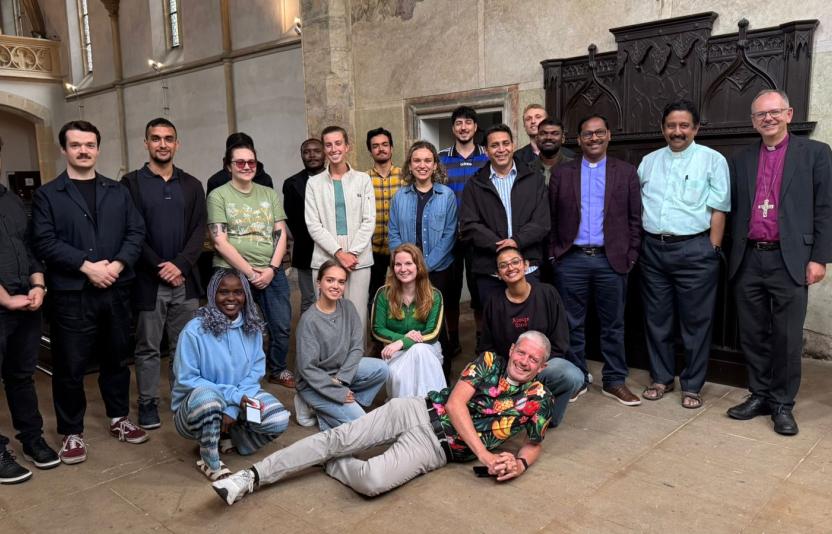Young People's Nicene Creed Reflections

Noura Eid is an MES intern at St George's Church, Barcelona and here offers her perspective on the Nicene Creed as a young person in the Diocese in Europe:

Learning about and being shaped by the great creeds and doctrines of the Church has become, for me, an essential part of discerning God’s love and will in daily life. What is fascinating about Christian Creeds, and here more specifically the Nicene Creed, is that it is not an invention of recent centuries. It is an ecclesial and ancient articulation of faith that binds us together across time and geography into one body – the global Body of Christ. It arose from a Spirit-led communal determination of our ancestors to express faithfully what God revealed in Jesus Christ through the power of the Holy Spirit. The church needed then, and always has throughout history, to spell out and define what it is that Christians believe – not to exclude, but to speak truthfully about what it means to belong to Christ. Let’s think of a painting: part of what makes it a painting is the fact that it has a frame. The Creed provides form to our faith – not merely as a collection of statements about God but as a guide leading us to know and love God more deeply. It safeguards our hearts and minds and directs our worship toward the divine love revealed in Christ. I find great wisdom in St. Ambrose’s words: ‘The Creed is the spiritual seal, our heart’s meditation, and an ever-present guardian; it is, unquestionably, the treasure of our soul.’
Each Sunday, as Anglicans around the world recite the Nicene Creed, I am reminded that the Church never ceases to stand in awe of who Jesus is. What inspires me most about this confession is its teaching on divine love. The Church Fathers of Nicaea affirmed that Christ’s obedience did not diminish His divinity: conceiving divinity not simply as power but also as love. God’s agape love creates and gives. It does not desire for itself, but it bestows. It seeks out the unworthy. It is love that gives without seeking return. Its highest expression is dying for sinners and enemies. The Creed proclaims: ‘For us and for our salvation he came down from heaven and was made man […] he suffered death and was buried […].’ In this love, God gives Himself. Love and revelation belong together: love is God going out of Himself for the sake of the other. Jesus Christ is this love in person, and this is what the Nicene Creed is witnessing to. To know Jesus is to encounter revelation itself, not as an idea but as the very event of divine self-giving.
My generation is (re)discovering that faith is neither naïve, uninformed, nor irrational, as some critiques of religion claim. At the far edge of reason, faith perceives a reality beyond what we can fully grasp. We have come to realize the limits of reason and the contingency of the world, and it is precisely there at this threshold that the mystery of God invites us into the adventure of faith. Faith does not stand in opposition to reason; rather, faith and reason together open a path toward knowing God more deeply. Today, I see and hear of many young people returning to the Church, especially to historical traditions, seeking roots in something larger than themselves that endures amid a contingent world. There is a longing to belong to something that stands within a story greater than oneself or the present moment. The Nicene Creed offers precisely this: a sense and an invitation of belonging and participating in God’s great narrative of salvation that transcends generations.
You can download a copy of this beautiful reflection here: A Young Person's Reflection on the Nicene Creed


